Ekiti Communities Lock Horns Over Establishment Of University
Two communities, Ikole-Ekiti and Oye-Ekiti, had competed to establish a Federal University in their localities, degenerating into a violent confrontation; however, efforts to avoid escalation were made.
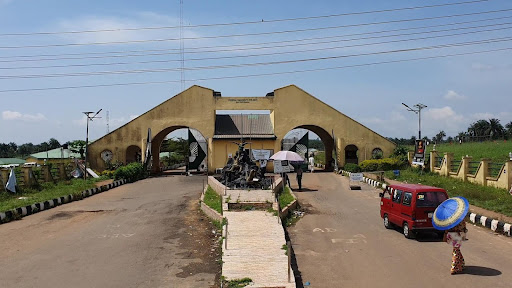
It was 12:27 p.m. WAT on a sunny Thursday in October when HumAngle visited the community hosting the Federal University of Oye-Ekiti (FUOYE). The institution is one of the nine universities established by former President Goodluck Jonathan in 2011 to address the increasing demand for university education and ensure federal balance across states.
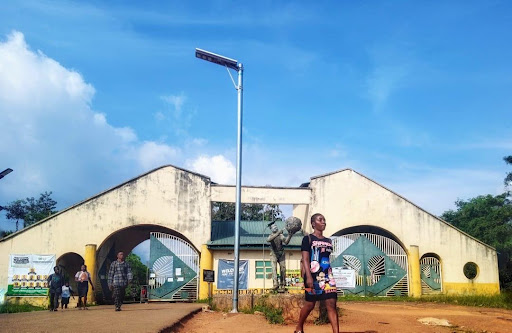
FUOYE’s main campus in Oye-Ekiti, Ekiti State, Southwest Nigeria, according to Google Map, is about 27 kilometres away from its other campus in Ikole Ekiti, which is located along Lokoja-Abuja federal highway in Ekiti North senatorial district.
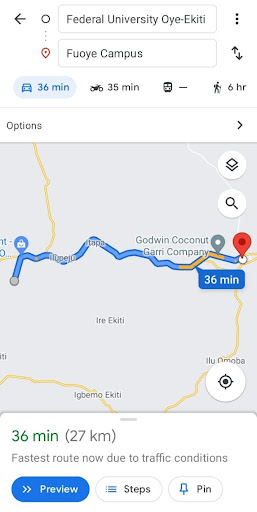
The controversy started when the federal and state governments disagreed over the institution’s location due to political differences between the defunct Action Congress of Nigeria (ACN) and Peoples Democratic Party(PDP), Ajayi Idowu, 40, a youth community leader, said.
“Fayemi wanted to hijack the school from us [Oye-Ekiti]; that was when the conflict started, and they took engineering and agriculture faculties to Ikole,” he said.
Sidikat Ogunshakin, an indigene and a high chief in ‘Omodowa quarters’, Ikole-Ekiti, said the community jubilated when the then governor, Kayode Fayemi, in 2011, announced on the radio that the university would be established in Ikole. So they were saddened when later they heard on radio that a sitting Senator Ayo Arise had ‘hijacked the university’ to Oye. This decision, she said, was the foundation of the conflict that led to the death of two people in the community.
However, peace returned when the federal government eventually situated two faculties in Ikole.
“Since then, there has not been any fight again,” she said.
On February 10, 2011, a peaceful protest degenerated into conflict in Ikole-Ekiti following the decision of the Federal Executive Council (FEC) under the administration of former President Goodluck Jonathan to relocate the newly established Federal University from Ikole Ekiti to Oye Ekiti. It led to the death of no fewer than six people, with numerous others wounded, as reported by Vanguard Newspaper.
Currently, the central campus of the institution is located at Oye-Ekiti, with eight faculties, while Ikole, the satellite campus, has three faculties.
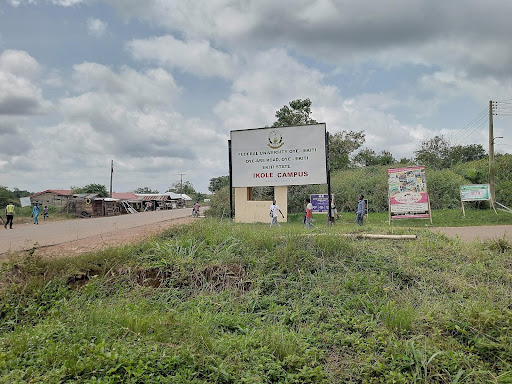
Photo Credit: Samuel Ajala/HumAngle
Political differences
The former vice-president of Oye youths, Sunday Awotunya, confirmed that political differences between the state and federal governments were the cause of controversies surrounding the university’s location.
Adeyemo Adeyemi, popularly known as ‘Baba Egbe Omo-Ilu’, a traditional chief in Asin-Ekiti (Ikole) and civil servant for ten years faulted the location of the university in Oye-Ekiti. He said it was based on the “connection of some bigwigs encapsulated in lobbying politically.”
On the feud between the two communities, Adeyemi said, “There is normalcy now as you can see. There is no conflict again; it was an intellectual war. The conflict between the two communities has passed because students and elites are meeting…It takes a lot of processes to change a university. So there is bound to be conflict and resolution.”
Students, monarchs speak
Multiple students who spoke with HumAngle said they have been treated well by the indigenes of Ikole-Ekiti so far, despite the controversies surrounding the university’s establishment in the community.
23-year-old Emmanuel Oladokun, from Faculty of Agriculture in Ikole campus said he has lived peacefully and interacted with indigenes of the community without conflict.
Victoria Eegunranti, a 400-level student in the Mechatronics Engineering Department, also narrates a similar experience since she left the hostel to live off-campus.
At Elekole of Ikole palace, the traditional ruler was absent. However, Chief Aribisala Gabriel, ‘Omodowa’, the fourth in-command chief in Ikole-Ekiti, spoke to HumAngle.
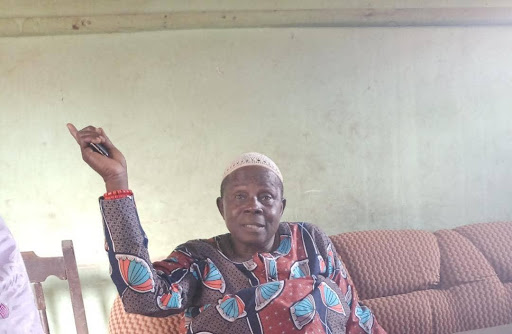
Gabriel said he learned from people in the community that out of the four districts – Ikole, Ado, Ijero and Ikere, it was only their community that was without a higher institution. In 2010 when Governor Fayemi was campaigning for election, he had promised that when there was an opportunity, he would bring a higher institution to Ikole-Ekiti.
He said the fight then in the community was severe as police vehicles were burnt, two people were killed, and others injured severely during the demonstration against the university’s relocation.
In reaction to whether there had been any conflict between Oye and Ikole before establishing FUOYE, he said, “There is no fight between them and us at all.”
Oba Michael Oluwole Ademolaju, Adugbole III, Oloye of Oye-Ekiti, who doubles as Chairman Oye Local Government Traditional Council reiterated that politics surrounded the establishment of the university.
When asked if there was still tension between him and the traditional ruler of Ikole-Ekiti, he said, “There is nothing like fighting. Ikole only fought one another. Nothing. We don’t have anything against the state government or the Ikole people.
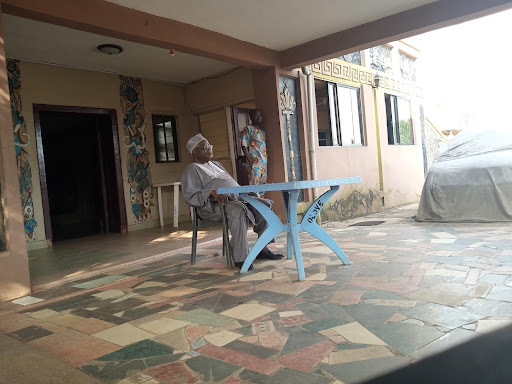
“We and Ikole people are neighbours, and we do things together. That was why we agreed that the two faculties should be in Ikole. If not, we could have gone to court. Nothing in the university statutes book says there should be a satellite campus in Ikole-Ekiti.”
Free Press Unlimited supported this report through the Campus Reporter Project of Premium Times Center for Investigative Journalism.
Support Our Journalism
There are millions of ordinary people affected by conflict in Africa whose stories are missing in the mainstream media. HumAngle is determined to tell those challenging and under-reported stories, hoping that the people impacted by these conflicts will find the safety and security they deserve.
To ensure that we continue to provide public service coverage, we have a small favour to ask you. We want you to be part of our journalistic endeavour by contributing a token to us.
Your donation will further promote a robust, free, and independent media.
Donate HereStay Closer To The Stories That Matter




